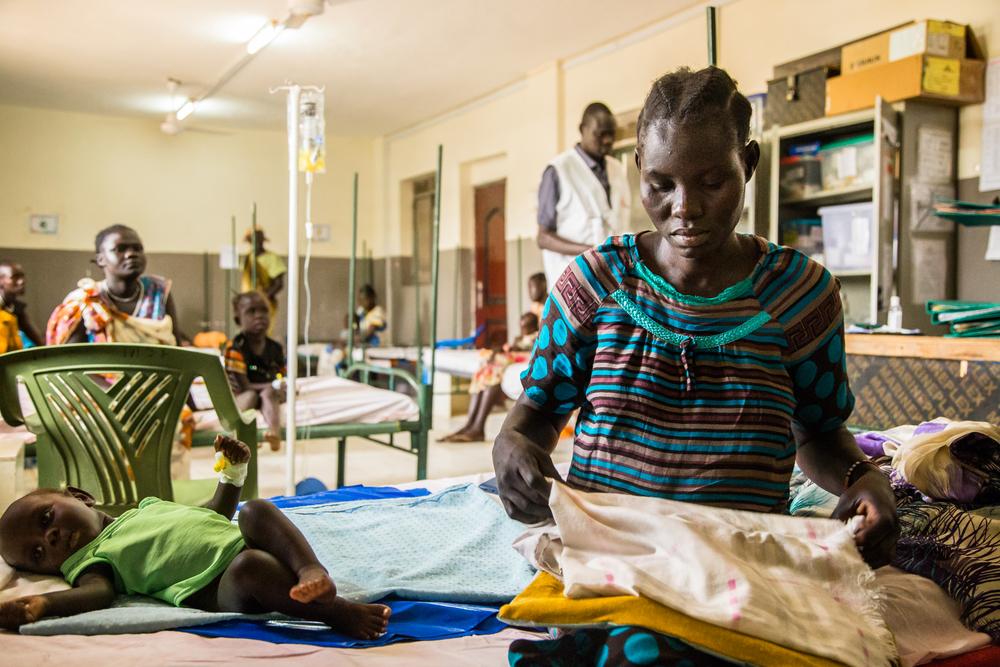Malakal/Juba, 24 September, 2019. - In order to support the full re-opening of Malakal Teaching Hospital Médecins Sans Frontières/Doctors Without Borders (MSF) will hand over the adult inpatient department to the Ministry of Health on September 30th. The hand-over is part of the process to devolve capacity to the local authorities, the international medical and humanitarian organization said today.
MSF will continue providing services in other departments with life-saving activities such as emergency room services, paediatrics, laboratory and blood bank in addition to running specialised HIV, Kala azar and tuberculosis (TB) programs. MSF mobile teams are also providing health services in remote areas of Akoka and Baliet counties.
MSF, in collaboration with the Ministry of Health, carried out nearly 4,600 medical consultations and hospitalized over 1,800 patients in the adult inpatient department since 2017.
Since the partial reopening of the ruined facility in March 2017, health indicators such as infant mortality and incidences of epidemics have stabilized, and more aid organizations are now present in the area, to the extent that some of MSF’s services are no longer required.
"The Ministry of Health is taking very welcome steps to fully reopen Malakal Teaching Hospital and is already running a 30 bed adult in-patient department with technical support from other health organisations,” said Helmer Charris, MSF field coordinator in Malakal.
“Given the high medical and humanitarian needs in South Sudan and limited resources, MSF is continuously adjusting our operations to ensure that resources can be used to best effect. MSF welcomes this commitment from the Ministry of Health to take over adult inpatients services at Malakal Teaching Hospital.”
MSF has been working in Malakal since 2010, both in the most critical periods of the conflict as well as in phases of more stability, and always adapting to the changing health and humanitarian needs of a population that has been often moving.
Malakal, in the Upper Nile region, was the second biggest town in South Sudan before the conflict started in 2013. Today, according to the World Health Organization, nearly 16,000 people live in the town, and around 32,000 internally displaced people (IDPs) live in the nearby Protection of Civilians site (PoC). The only hospital in the town was destroyed in 2015, and in response, MSF invested in rehabilitating that facility since 2017.
MSF has been in the region that today constitutes South Sudan since 1983. Today, MSF operates 15 projects across the country. In 2018, MSF performed 1,157,900 outpatient consultations.
In some areas, the organization operates large hospitals providing primary and secondary medical care including surgeries and treatment of complicated illnesses such as HIV, TB, or Kala Azar. In other locations, MSF runs decentralized models of care with community health workers in order to reach the most vulnerable populations and treat the most common morbidities such as malaria, skin diseases, and acute watery diarrhea.
